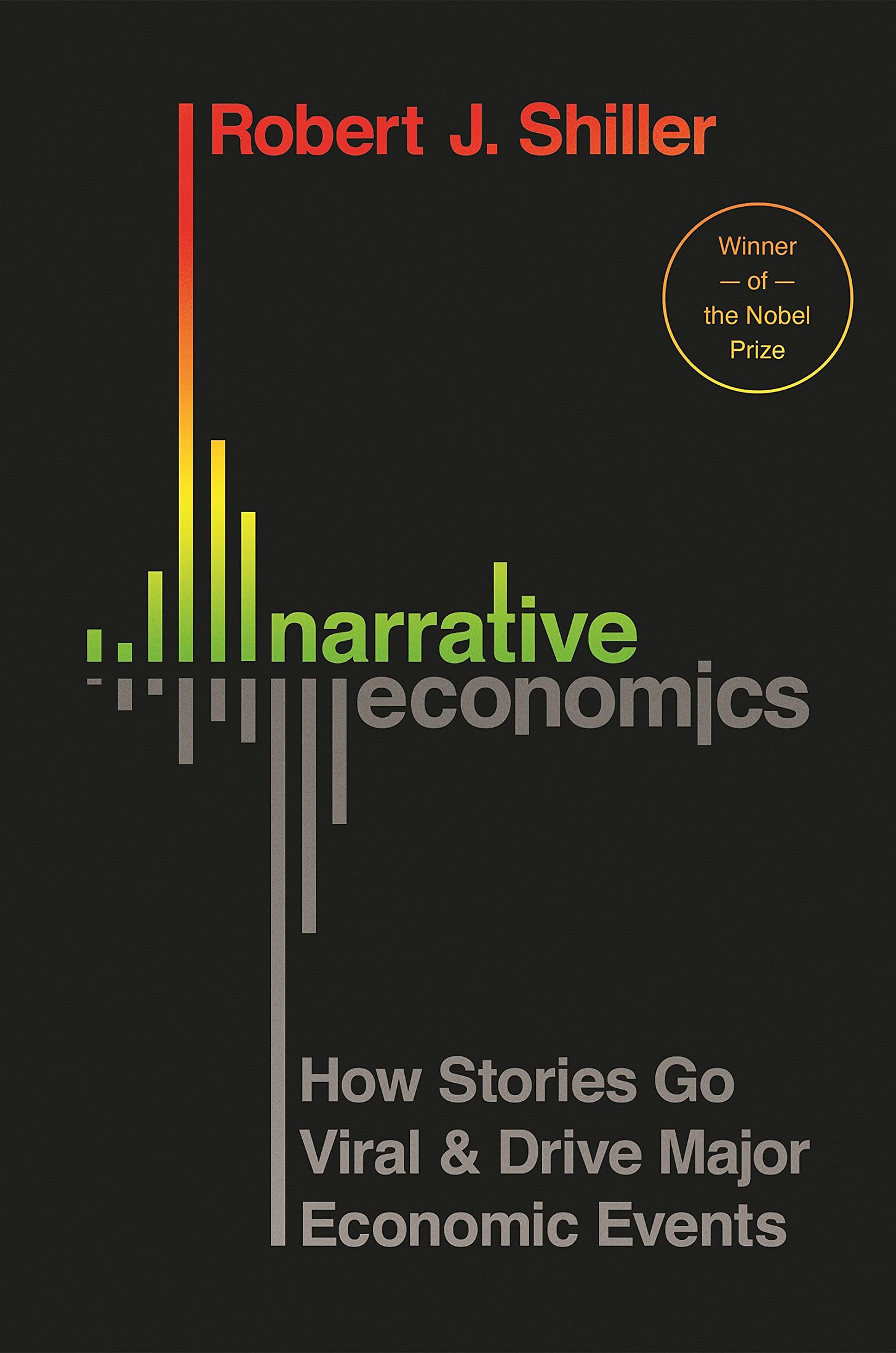Narrative Economics: How Stories Go Viral and Drive Major Economic Events
by Robert Shiller
Sometimes you read a book and you can just tell that the author is probably a nice person because their prose is clearly so sensitive and broadminded. When that’s the case you really don’t want to have to write something about how the book sucks but unfortunately this just happens to be the case with Narrative Economics. The entire gist of the book is contained in its subtitle: “Stories Go Viral & Drive Major Economic Events.” Do you understand that? Great, you basically don’t need to read this book. Anyone who spends time on social media and notices the creepy episodes when everyone suddenly starts repeating the exact same political sentiments and catchphrases in unison already knows that something really weird is going on and that human beings are not exactly the rational calculating individuals posited by the Enlightenment. I want to learn as much as possible about what drives this dispiriting behavior but it seems like media ecologists like Martin Gurri and Andrey Mir are better at explaining it than professional economists.
Narrative Economics argues that people’s brains are wired to think in stories and that these stories exert a powerful subconscious influence on how they see the world. But is there anyone on earth who didn’t already know this? Many economists, I suppose. To be fair there are a couple of interesting points Shiller makes, including how the “affective heuristic” nature of stress can make people transfer their general anxiety about one subject to all subjects that they analyze. I have noticed that many people manage to be hysterical about several different political issues simultaneously, and have long suspected that this might be more about their personalities than the underlying issues. It’s obvious that emotionally compelling narratives are geared to go viral in people’s brains, and that if you can make people feel something it tends to be much more powerful than making them pause and think.
Lacking any other point to make for three hundred pages besides the fact that Stories = Powerful, the book is mostly forced to do basic economic history for chapters on end. If you’re interested in learning a bit about the Great Depression, the rise of Bitcoin, or longstanding debates over automation and employment, he certainly goes over those episodes. Shiller draws very ecumenically from many different fields and I can tell from his work that he is a careful thinker and writer. But, sadly, his book does not contain an original thesis about the memetic contagion of ideas, other than noting the obvious fact that such contagion exists. Memes are important and people think in terms of stories. If you want to spread a political perspective, think of the story you want to tell first. I could’ve told you that without reading this book and in fact I just did.

